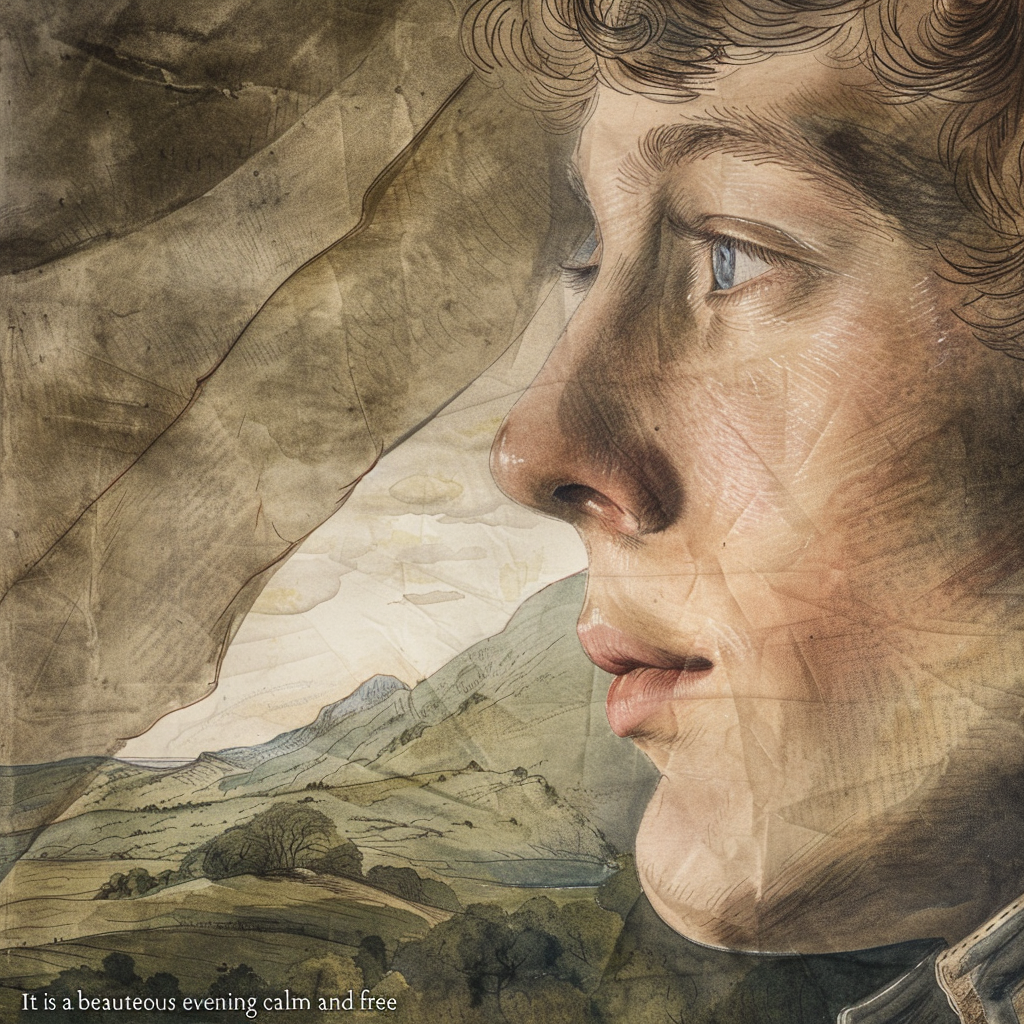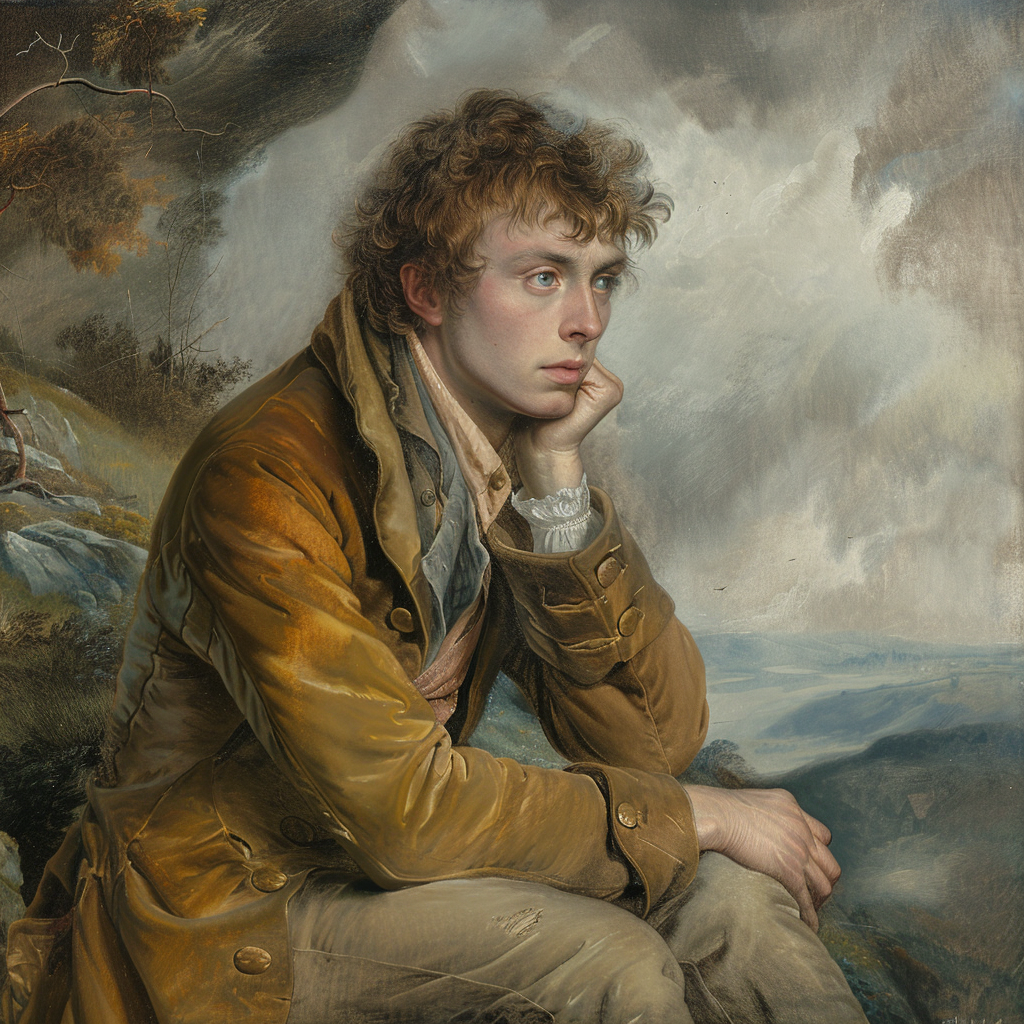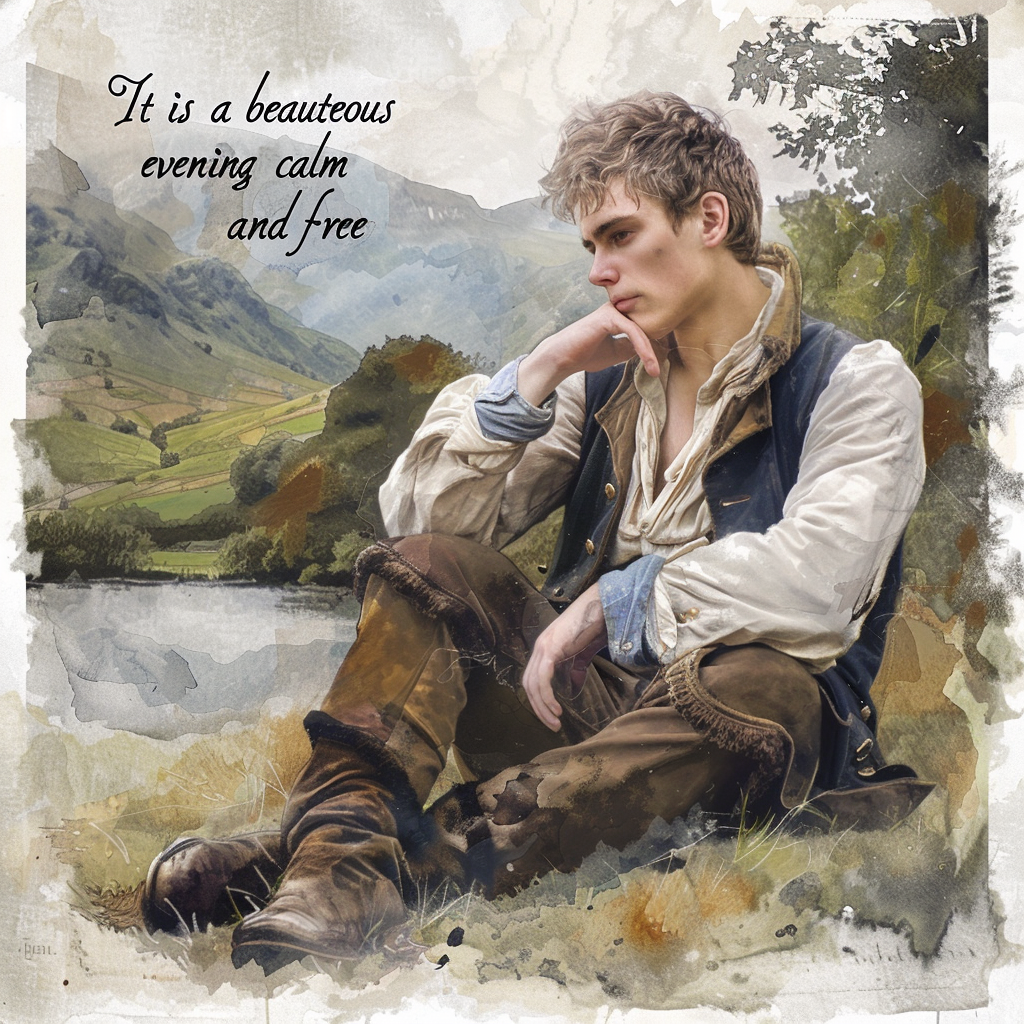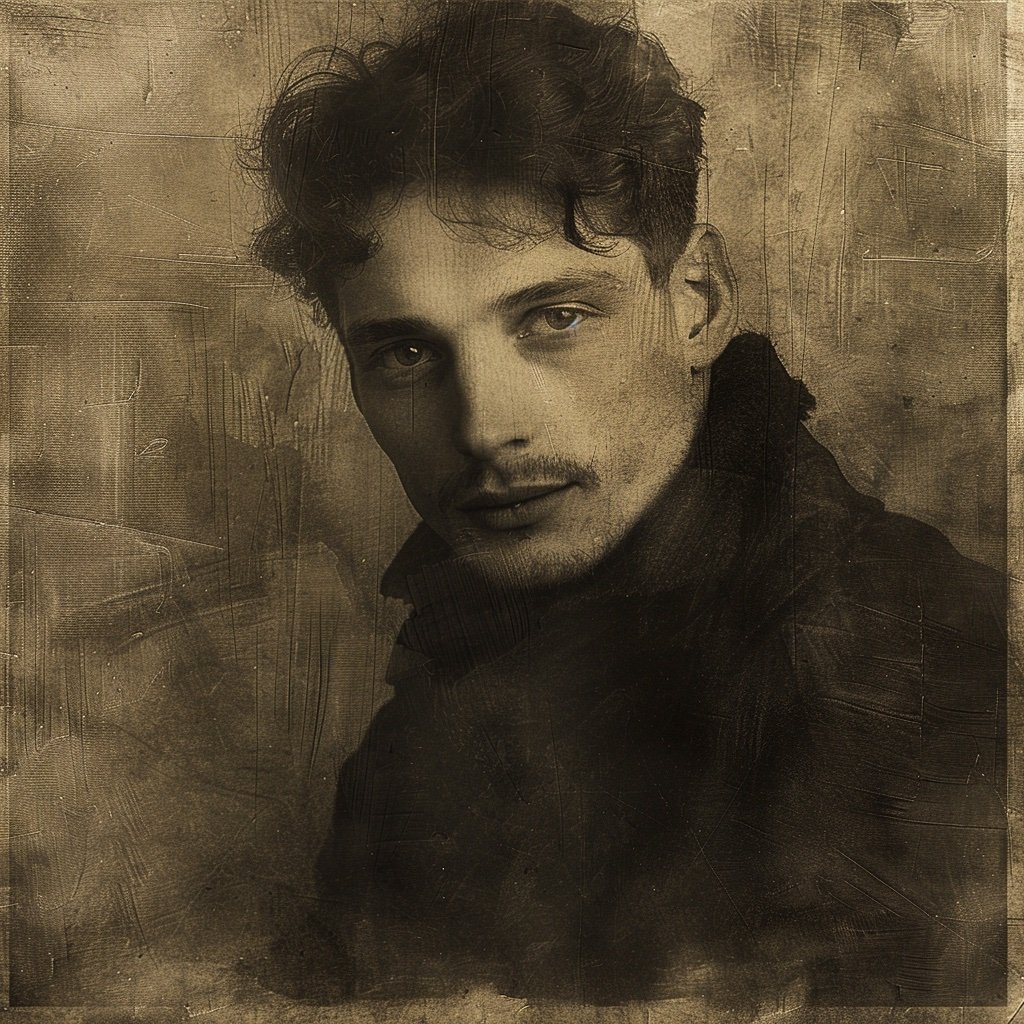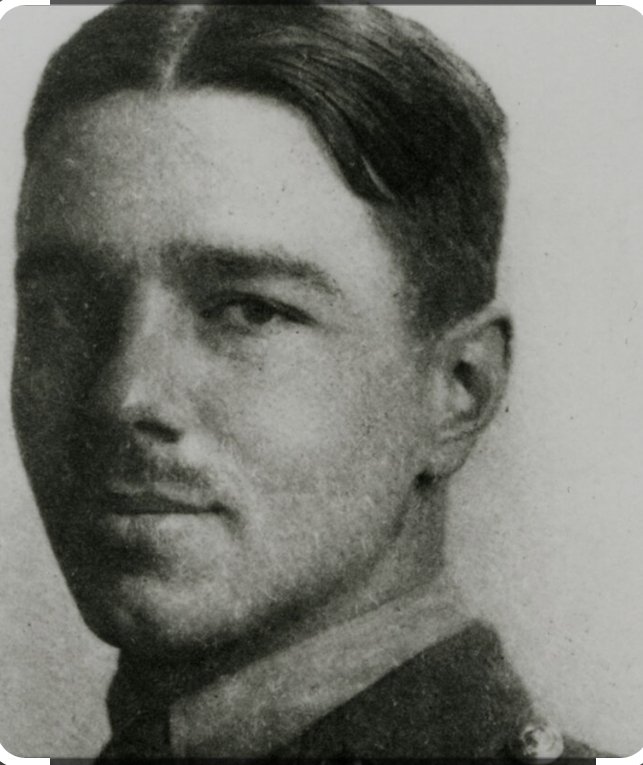WORDSWORTH ~ It Is A Beauteous Evening Calm and Free (1802)
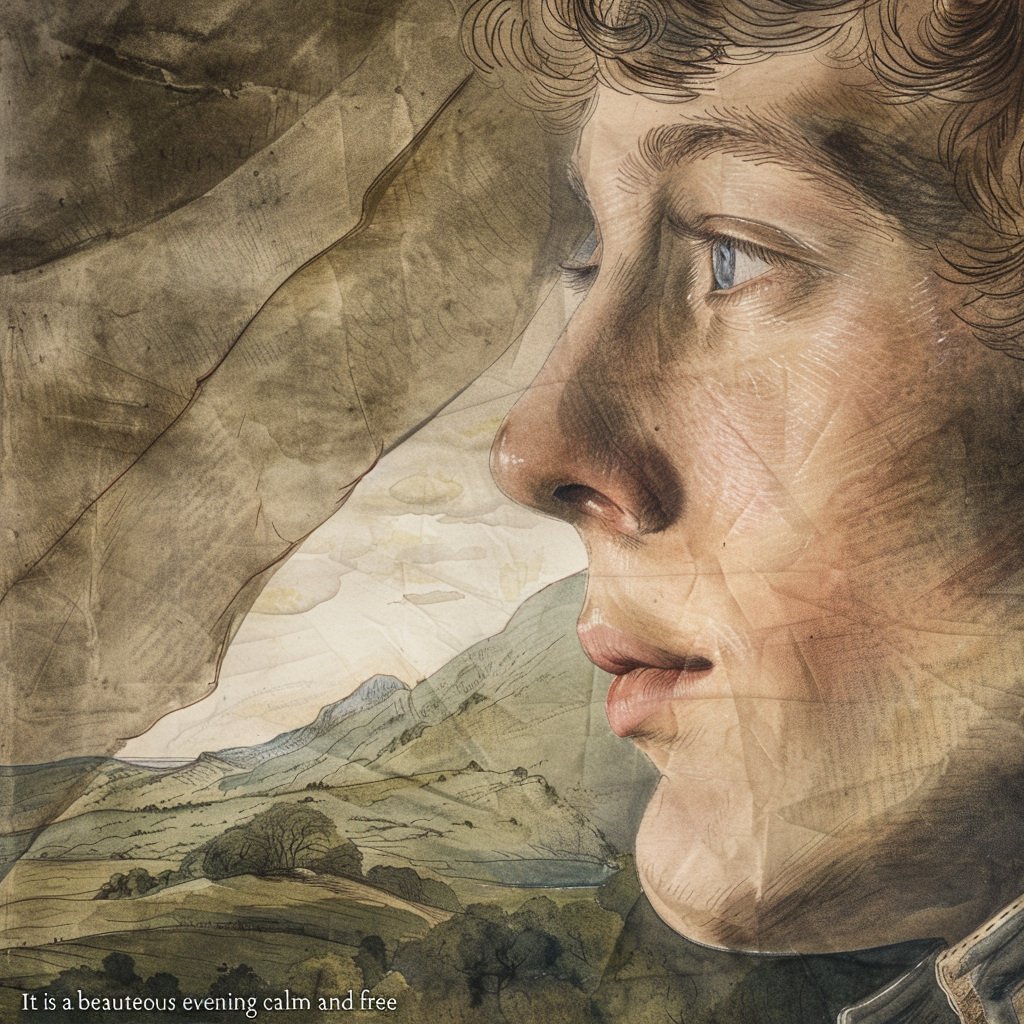
The Great Poets
IT IS A BEAUTEOUS EVENING,
CALM AND FREE (1802)
by
William Wordsworth (1770-1850)
(British English as Written by Wordsworth in 1802)
It is a beauteous evening, calm and free,
The holy time is quiet as a Nun
Breathless with adoration; the broad sun
Is sinking down in its tranquility;
The gentleness of heaven broods o'er the Sea;
Listen! the mighty Being is awake,
And doth with his eternal motion make
A sound like thunder—everlastingly.
Dear child! dear Girl! that walkest with me here,
If thou appear untouched by solemn thought,
Thy nature is not therefore less divine:
Thou liest in Abraham's bosom all the year;
And worshipp'st at the Temple's inner shrine,
God being with thee when we know it not.
William Wordsworth composed this sonnet at Calais in August 1802. First published in his collection entitled Poems, in Two Volumes in 1807, it appeared as a miscellaneous sonnet, the nineteenth poem in the collection.
William Wordsworth lived a long and eventful life, being appointed Poet Laureate by Queen Victoria in 1843 and until his death in 1850 aged 80 years. His most famous work, The Prelude, a truly monumental and thought-proving work, was not published until after his death, and extracts will be reviewed occasionally on this platform.
The cover design is a digital artwork design. Although Wordsworth did not compose this poem until he was thirty-two years of age, I wanted to imagine the poet as a man aged twenty in 1790 against the background of Cumbria on the northwest coast of Britain.
I then designed a poet of similar age in, say, 2010 or 2024, as a reminder that poets still occupy that position that enables them to bridge the cavern between reality and mysticism, between what is now, all around us, and what all of us can only imagine might be beyond. In other words, this review continues to explore that which is established in Visitation and its sequel, Visitation ~ Its Foundation.
Notes and Sources
1 This version is that which we can read online on The Poetry Foundation website.
I’ve selected this version, as the editors have retained the language in which Wordsworth wrote and conversed. I am most grateful to the editors of The Poetry Foundation, and encourage all with a love of poetry to visit this enthralling and beautiful website. The Poetry Foundation embraces every century, every age, every part of the world.
2 My source note is the separate Wikipedia entry relating to this poem, and I am grateful to Wikipedia, of which I am a paid monthly subscriber. As always, if quoting Wikipedia, I am mindful that sometimes facts and information might not be verified.
9 July 2025
In Step with Time
Whether it be 1790, 1890, 1990,
2009, 2019, 2024, 2025 or even the Future
Our Great Poets
Remain in step
With Time itself
And do not fail us
© 2024 KTW © 2024 IBM
Ken Webb is a writer and proofreader. His website, kennwebb.com, showcases his work as a writer, blogger and podcaster, resting on his successive careers as a police officer, progressing to a junior lawyer in succession and trusts as a Fellow of the Institute of Legal Executives, a retired officer with the Royal Air Force Volunteer Reserve, and latterly, for three years, the owner and editor of two lifestyle magazines in Liverpool.
He also just handed over a successful two year chairmanship in Gloucestershire with Cheltenham Regency Probus.
Pandemic aside, he spends his time equally between his city, Liverpool, and the county of his birth, Gloucestershire.
In this fast-paced present age, proof-reading is essential. And this skill also occasionally leads to copy-editing writers’ manuscripts for submission to publishers and also student and post graduate dissertations.


